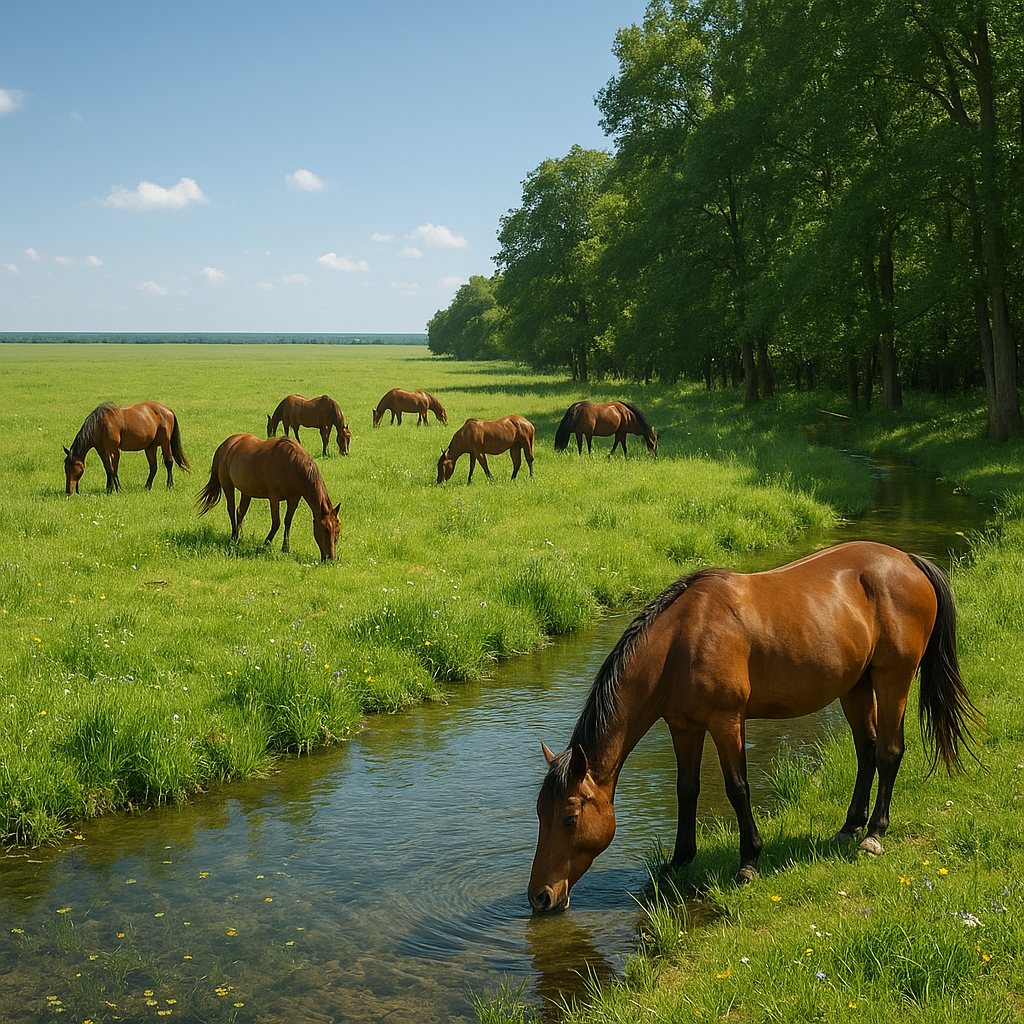The Fundamental Needs of Equines: Ensuring Their Well-being and Balance
By Lost'Him Team • February 22, 2025

Equines (horses, donkeys, ponies) are sensitive and intelligent animals that require special attention to maintain their physical and mental health. Understanding and meeting their fundamental needs is essential to provide them with a balanced environment and optimal well-being. Here are the key elements to ensure a happy and healthy equine.
1. A Suitable and Secure Living Space
👉 Creating an environment that promotes well-being
- A spacious pasture: Provide daily access to a grassy, secure area where they can move freely and graze, ideally with at least one hectare per horse.
- Adequate shelter: Protect equines from harsh weather (rain, wind, sun) with a clean, dry, and spacious shelter where they can take refuge when needed.
- Safe fencing: Avoid dangerous fencing (barbed wire) and ensure it is well-maintained.
💡 An equine with sufficient and secure space will be more relaxed and healthier.
2. A Balanced and Adapted Diet
👉 Meeting their specific nutritional needs
- High-quality forage: Hay is the foundation of an equine’s diet, especially in winter or when grass is scarce.
- Constant access to fresh water: Equines should have unlimited access to clean, regularly replenished water.
- Supplements and minerals: Depending on age, activity level, and health, additional minerals, vitamins, or concentrates may be necessary.
💡 A balanced diet helps prevent colic, ulcers, and other common equine health issues.
3. Regular Health Care
👉 Ensuring veterinary follow-up and daily care
- Deworming and vaccinations: Establish a routine deworming schedule and ensure annual vaccinations.
- Hoof care: Hooves should be trimmed every 6 to 8 weeks to prevent lameness.
- Monitoring overall health: Observe skin condition, teeth, appetite, and behavior daily.
💡 Consistent health monitoring ensures longevity and well-being for your equine.
4. Essential Social Interaction
👉 Encouraging social interactions
- Companionship with other equines: Living in groups or pairs satisfies their need for social interaction.
- Human interaction: Spending time with your equine—grooming, walking, or riding—strengthens the bond and prevents boredom.
- Avoid prolonged isolation: A solitary equine may develop stereotypical behaviors (cribbing, weaving, aggression).
💡 A well-socialized equine will be mentally balanced and happier.
5. Regular Physical Activity
👉 Providing opportunities for movement and exercise
- Daily turnout: Even equines that are not ridden should have space to move freely every day.
- Tailored training: Sport and leisure horses should have a training regimen suited to their age and fitness level.
- Varied terrain: Trail riding, arena work, and pasture turnout stimulate their mind and muscles.
💡 An active equine is healthier and less prone to behavioral issues.
6. Special Attention to Mental Well-being
👉 Creating a stimulating and calming environment
- Providing toys: Balls, hanging objects in stalls or pastures keep them engaged.
- Avoiding sudden changes: A stable environment and a consistent routine are crucial.
- Spending quality time together: Grooming, affection, and speaking to them build trust and provide comfort.
💡 A mentally fulfilled equine will be more cooperative, confident, and serene.
7. A Relationship Based on Respect and Trust
👉 Establishing a healthy and positive relationship
- Be patient and consistent: Equines respond to emotions and gestures; a calm and stable approach is essential.
- Avoid harsh handling or rushing: Training based on kindness and respect fosters a harmonious bond.
- Learn to understand their body language: Equines communicate through posture, ear and tail movements. Recognizing these cues prevents stress and misunderstanding.
💡 An equine that feels respected and understood will develop a long-lasting bond of trust with its owner.
Conclusion: Providing a Suitable Environment for a Thriving Equine
- ✅ A spacious and secure living space for free movement.
- ✅ A balanced diet with high-quality forage, clean water, and necessary supplements.
- ✅ Regular veterinary care to prevent illnesses and maintain hoof health.
- ✅ Daily social interaction with other equines and humans.
- ✅ Appropriate physical activity to prevent boredom and maintain fitness.
- ✅ A stimulating environment to reduce stress and support mental balance.
- ✅ A relationship based on respect and kindness for mutual trust.
💡 An equine whose fundamental needs are met will be happier, healthier, and better balanced! 🐴💚
 EN
EN  FR
FR